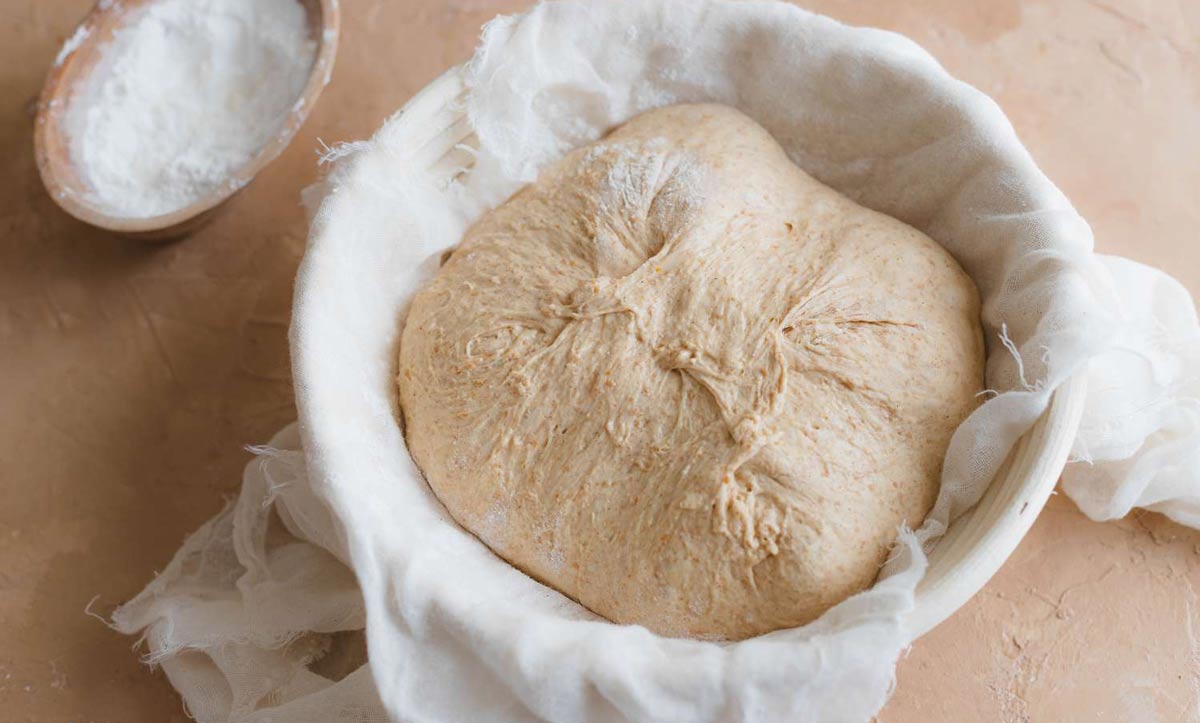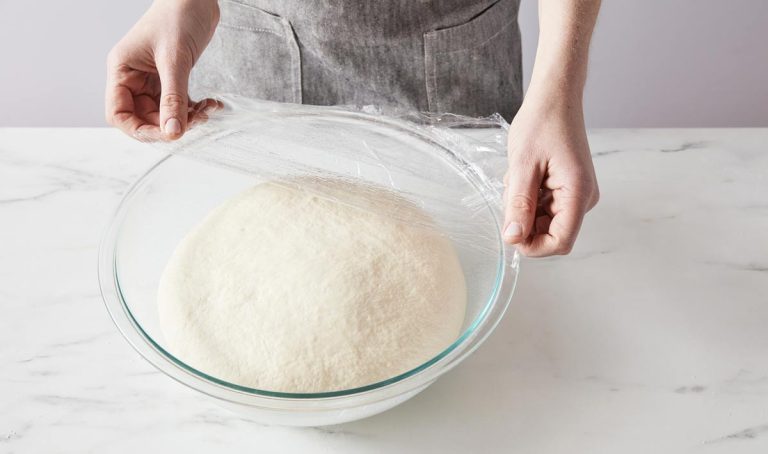How Long to Proof Sourdough?
Proofing is considered the last stage before baking, yet many people find it challenging to master the art of perfect sourdough proofing. The process needs to follow certain conditions for optimal fermentation.
This guide will provide you with valuable insights about the time needed for the sourdough to rise in the fridge, banneton, and oven, as well as key signs that show sourdough is adequately proofed.
How Long To Proof Sourdough?
Proofing sourdough can be done in various ways, such as using the fridge, a banneton, or even the oven. The method you choose depends on your personal preferences, but it is hard to say the exact time as it entirely relies on the type of flour, room temperature, and the humidity level of the dough.
How Long to Proof Sourdough in Fridge?
You can proof sourdough in the fridge for up to 36 hours. Although the numbers can vary significantly due to temperature and the kind of sourdough you are using. Some people keep it overnight for 8 hours and also, and some people keep it for 5-6 hours.
The longer you keep it in the fridge, the more it will develop sour flavors. Moreover, keeping it longer for fermentation will give you the flexibility to handle it easily for baking and provide a glossy crust.
However, if you keep it longer than the mentioned hours, it can result in the sourdough to overproof. Once it gets overproof, the sourdough will have a lack of energy due to overspring and may lose its shape. Also, it will become denser and stickier.
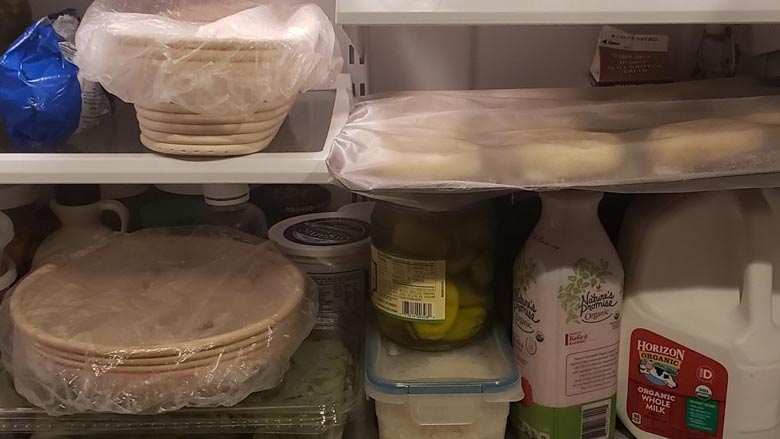
How Long to Proof Sourdough in Banneton?
Proofing sourdough in the banneton can typically take up to 12 hours or overnight. Mainly, the time relies on the surrounding temperature and the type of ingredients. It takes less time in summer than in winter due to the humidity. For example, the dough can take 3-5 hours in summer, while in winter it can take more than 7-8 hours.
The banneton helps the dough to keep it in shape during the final rise. Also, excess moisture from the dough is absorbed by the banneton and it can make your dough less sticky.
Nevertheless, remember that if you put too much dough for the size of a banneton, it can overproof. It is advised to wrap the banneton containing the dough in a food-grade plastic bag or cover it to create an airtight seal as much as possible.
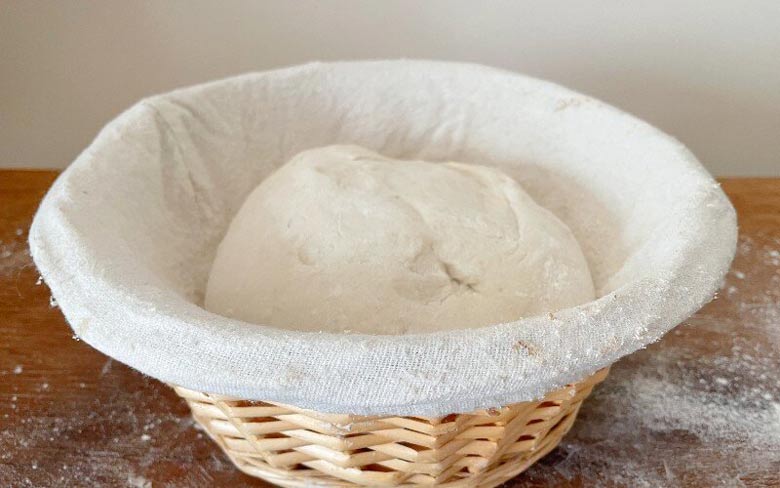
How Long to Proof Sourdough in Oven?
In the oven, the sourdough proof usually takes about 2-4 hours, depending on the temperature of the oven. You can either use proof-setting or proof-box. The temperature in the proof-setting stays between 80-95°F (27-35°C), and proof box it stays between 75-85°F (24-29°C).
Proofing sourdough in the oven is a quick process, but it requires careful monitoring as the high temperature can lead to overproofing. Besides, it can result in less oven spring, and can also make the loaf denser.
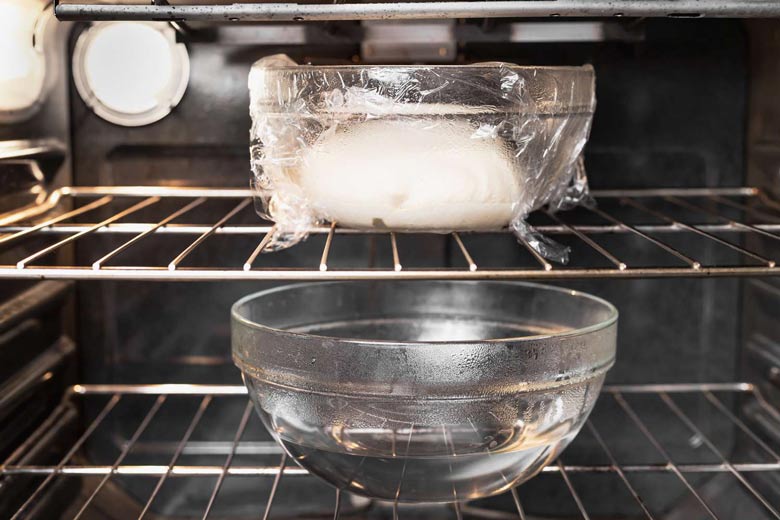
How Do You Know When Sourdough Is Done Proofing?
The signs that indicate your sourdough is done proofing such as visual observation, finger press test, shake test, and smell odor test.
1. Visual Observation
Observe the sourdough for visible changes in shape and size, it will significantly increase compared to its old shape for proofing. After that, you can look for the bubbles appearing on the surface or along the sides of the bowl.
Moreover, a properly sourdough will form a slightly domed shape, if it appears flat or collapses, this indicates over-fermentation.
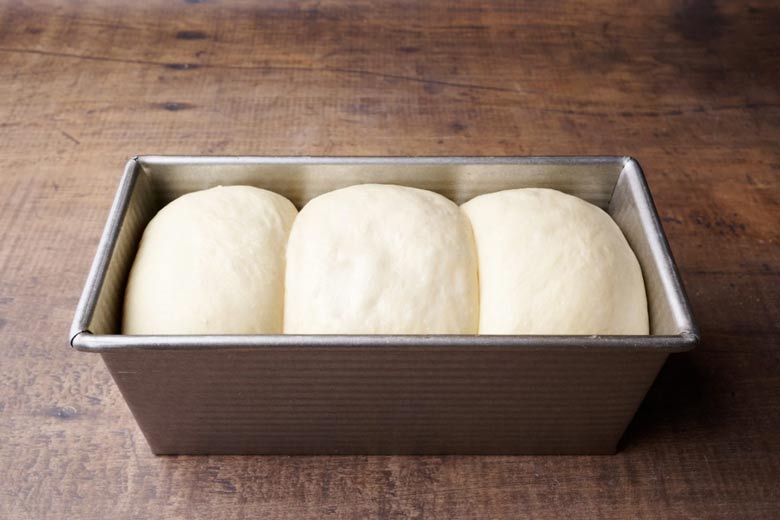
2. Finger Press Test
After visually inspecting the dough, you can also check the sourdough if it’s done proofing by simply pressing your finger on the dough.
Once you press the finger on the sourdough if it quickly bounces back, it means it’s under-proofed. On the other hand, if the sourdough doesn’t have any reaction or changes, it indicates it’s over-proofed.
However, if the sourdough slowly bounces back and holds the indentation, it is perfectly fermented and ready for baking.
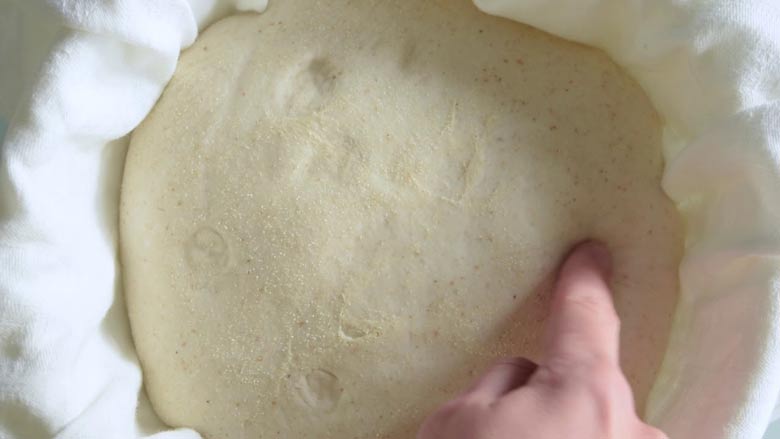
3. Shake Test
Professional bakers often use another method, called the ‘shake test’ to determine the proofing of sourdough.
The process of doing this test is simple. Gently lift and shake the bowl containing the sourdough. If the sourdough moves together as a cohesive mass and wobbles slightly, it shows the proofing is done accurately and reached its desired level.
In contrast, if the sourdough seems too loose and wobbly, it is still under-proofing and needs additional time to develop.
4. Smell Odor Test
A smell odor test is also an effective method to determine if your sourdough has been properly proofed or not.
Initially, the raw sourdough presents a distinct sourness and yeasty aroma, but once it completes proofing, it releases a delightful odor that is surely going to please your senses.
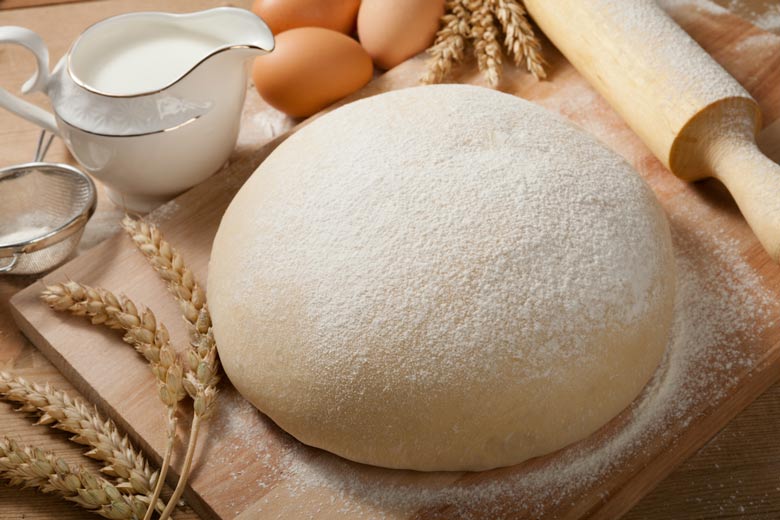
Frequently Asked Questions
What Temperature Should I Proof My Sourdough At?
The sourdough should ideally be proof between 75-85°F (24-29°C) with humidity levels ranging from 60-80%. Temperature adjustment may be slightly needed based on the sourdough type and fermentation duration.
Within this temperature range, the sourdough will rise and develop a lighter texture.
How Does Hydration Level Affect Proofing Time of Sourdough?
Hydration level directly affects the proofing time of sourdough. A higher hydration level of sourdough will ferment faster compared to a lower hydration level because it speeds up the yeast’s biochemical reactions by creating a favorable environment. On the other hand, a lower hydration level slows down the fermentation and needs more proofing time.
So, from a general point of view, if you want less proofing duration and quick fermentation, you should increase the hydration level of the sourdough, or for slower fermentation and more proofing duration, decrease the hydration level of the sourdough.
Does Proofing Sourdough in the Fridge Affect Timing?
Yes, proofing sourdough in the fridge affects timing. Usually, proofing sourdough in the fridge takes more time than at room temperature. For example, proofing at room temperature takes about a few hours due to its warmness, whereas cold proofing in the fridge can take up to overnight as it slows down the yeast activity.

